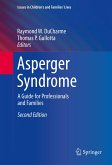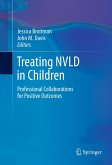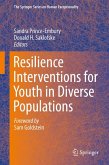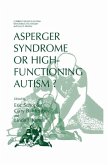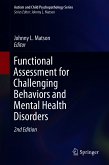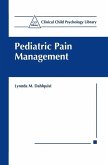Dieser Download kann aus rechtlichen Gründen nur mit Rechnungsadresse in A, B, BG, CY, CZ, D, DK, EW, E, FIN, F, GR, HR, H, IRL, I, LT, L, LR, M, NL, PL, P, R, S, SLO, SK ausgeliefert werden.
(Developmental Medicine and Child Neurology (March 2002)
"The recognition that people with Asperger Syndrome differ from each other and have an individual profile of impairments and needs is a relatively recent one in professional circles. Less has been written about psychological assessment and much less has been written about intervention. This book's attention to both will be welcomed by parents and sufferers, as well as professionals."
(Digby Tantam in Contemporary Psychology, 48:3 (2003)



